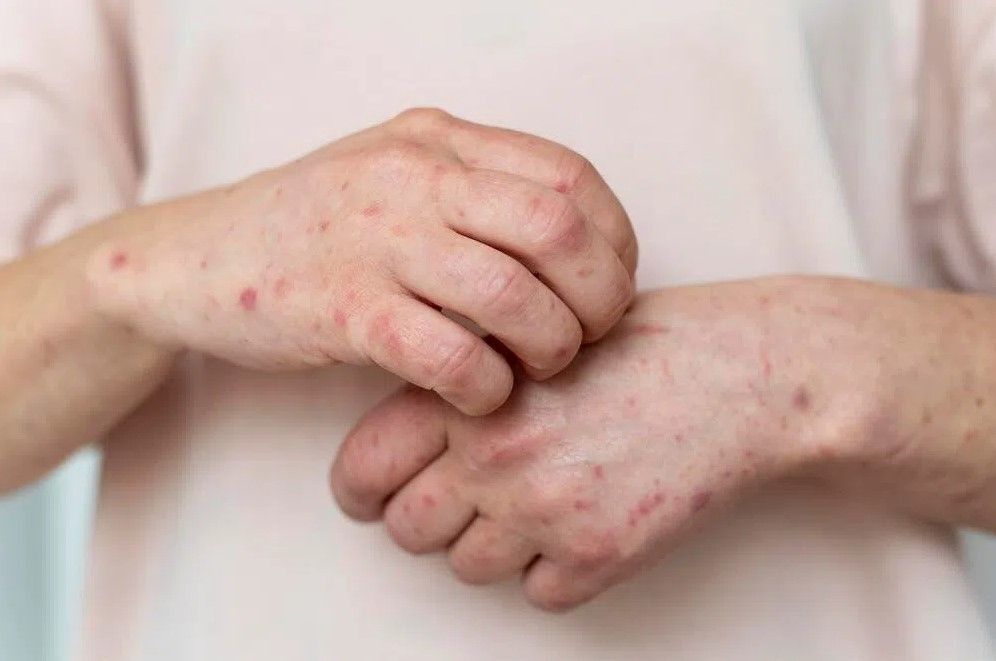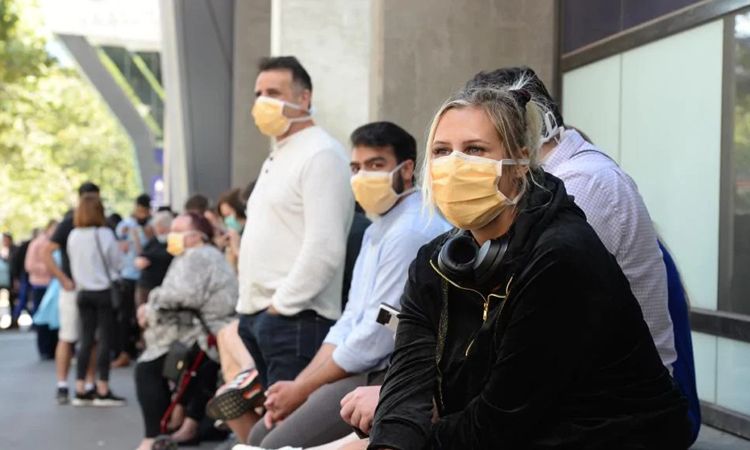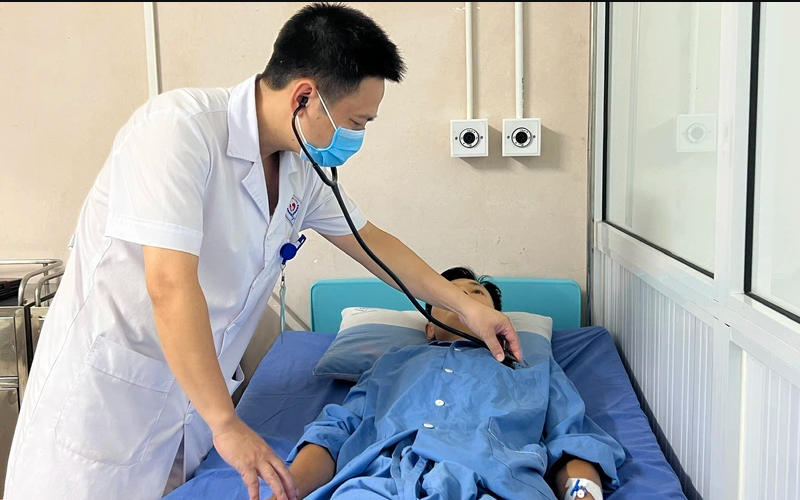Increase in drug-resistant bacteria after the Covid-19 pandemic
After the Covid-19 pandemic, the sensitivity of many bacteria to antibiotics tends to decrease, including the new group of antibiotics, which are prioritized for treating respiratory infections.
This information was shared by experts at the scientific conference of the Vietnam Respiratory Association - the French-Vietnamese Lung Association, on the morning of November 4.
The conference was held to celebrate 50 years of diplomatic relations between Vietnam and France and 30 years of medical cooperation between France and Vietnam. More than 1,000 experts and doctors from Vietnam, France, and Australia discussed solutions to manage antibiotic resistance and lung damage after Covid-19.
People's Physician, Professor, Dr. Ngo Quy Chau, Chairman of the Vietnam Respiratory Association, Professional Director of Hanoi Tam Anh General Hospital, said that Vietnam is one of the countries in recent years increased antibiotic resistance. The cause is unreasonable use of antibiotics such as unreasonable prescribing, poor hospital infection control, use of antibiotics in aquaculture, in livestock and in the community... In particular, the People arbitrarily using antibiotics, arbitrarily increasing or decreasing doses or skipping doses also increases the risk of antibiotic resistance.
During the Covid-19 pandemic, many bacterial and fungal infections and tuberculosis went undiagnosed and untreated due to the closure of outpatient clinics. "People are afraid and limit going to the doctor, so the pathogens may not be completely prevented, leading to the risk of spreading and drug resistance," Professor Chau said.

Outstanding physician, associate professor, Dr. Chu Thi Hanh, Vice President of the Vietnam Respiratory Association, Head of the Respiratory Department, Tam Anh General Hospital in Hanoi, said the priority first-line antibiotics are selected. For the treatment of community-acquired respiratory infections, there are three main types: penicillin group, cephalosporin group and macrolide group. Research results of many published works in Vietnam and the world show that currently the sensitivity of bacteria to these antibiotics tends to gradually decrease, even the level of resistance is at a high level. alarming.
In a 2021 analysis, the US Centers for Disease Control and Prevention (CDC) reported that the rate of hospital-acquired infections (HAIs) in the country was significantly higher in 2020, when the Covid-19 pandemic emerged. presently. Of these, many are resistant to antibiotics or antifungals. Some other studies on antibiotic resistance after the Covid-19 pandemic, such as studies in Korea and the US, also showed an increase in drug-resistant bacteria after the pandemic.
Reporting at the conference, Prof. Dr. Hans Liu, Bryn Mawr Hospital, USA, said the world is lacking inventions on new antibiotic groups. Over the past 10 years, there has been no discovery of new antibiotics, while the number of antibiotic-resistant bacteria has increased sharply, especially after the Covid-19 pandemic. "Use the best antibiotics for indications, stop using antibiotics when no longer needed with a shorter course to reduce antibiotic resistance," Professor Hans said.
Professor Chau said: "Reasonable use of antibiotics, strengthening infection prevention and control in non-hospital facilities, such as nursing homes and long-term care facilities, proactive disease prevention by Vaccination helps reduce the burden of antibiotic resistance.
Within the framework of the conference, experts also discussed in depth the current situation of lung damage in people with prolonged Covid-19. According to Associate Professor Hanh, the duration of Covid-19 lasts more than just a few months as many patients think. "Many cases still have lung damage left by Covid-19 after 1-2 years," Associate Professor Hanh said.
Pulmonary sequelae in patients with prolonged Covid-19 manifest at different levels of severity, from difficulty breathing to severe lung damage, requiring dependence on ventilators. Some of the most common persistent symptoms are difficulty breathing, decreased mobility and hypoxia, persistent cough, and chest pain. In people with severe Covid-19 disease, after recovery, they may still experience sequelae of pulmonary fibrosis.

Speaking at the Conference, Associate Professor, Dr. Luong Ngoc Khue, Director of Medical Examination and Treatment Management (Ministry of Health), said that thanks to the active coordination between the Ministry of Health and specialized associations, especially As a respiratory specialist, the fight against Covid-19 has achieved many successes. Vietnam has officially transferred Covid-19 from group A infectious disease to group B. However, many challenges still remain. In recent years, Vietnamese respiratory scientists have increased international scientific cooperation to update scientific knowledge on diagnosis, treatment and prevention of respiratory diseases.
Associate Professor, Dr. Nguyen Thi Xuyen, President of the Vietnam General Medical Association, stated the current situation of respiratory diseases becoming more and more complicated. In addition to classic diseases, there are also emerging diseases that have never existed before, making it difficult to diagnose, treat and monitor patients. The unpredictable and complicated developments of infectious respiratory diseases and antibiotic resistance of bacteria also make diagnosis and treatment difficult. The Vietnam Respiratory Association has contributed significantly to enhancing health education communication, training, updating medical knowledge for doctors, and improving the quality of medical examination and treatment.
This year's conference had 137 reports from nearly 90 experts and doctors, of which more than half came from Vietnam, France, America, Japan, and Australia. Many practical topics are discussed such as updated diagnosis and treatment of asthma, chronic obstructive pulmonary disease, lung cancer, sleep apnea, interstitial lung disease..., pediatric respiratory problems and surgery. chest.
Many new diagnostic and treatment techniques were shared such as ultrasound bronchoscopy, non-invasive mechanical ventilation to treat sleep apnea, minimally invasive lung surgery, lung biopsy for early diagnosis of lung cancer, and Endovascular intervention in some respiratory diseases such as arteriovenous catheterization, prevention strategy and treatment of hospital-acquired pneumonia.
"This is an opportunity for domestic and foreign doctors to update the world's latest advances in respiratory medicine and identify new challenges in medical examination and treatment in the post-Covid-19 period," Associate Professor Hanh said. know.
* SOURCE: https://vnexpress.net/tang-vi-khuan-khang-thuoc-sau-dai-dich-covid-19-4673017.html









 Facebook
Facebook
 Tweet
Tweet
 Zalo
Zalo







 News
News

















 Sign in with Facebook
Sign in with Facebook
 Sign in with Google
Sign in with Google